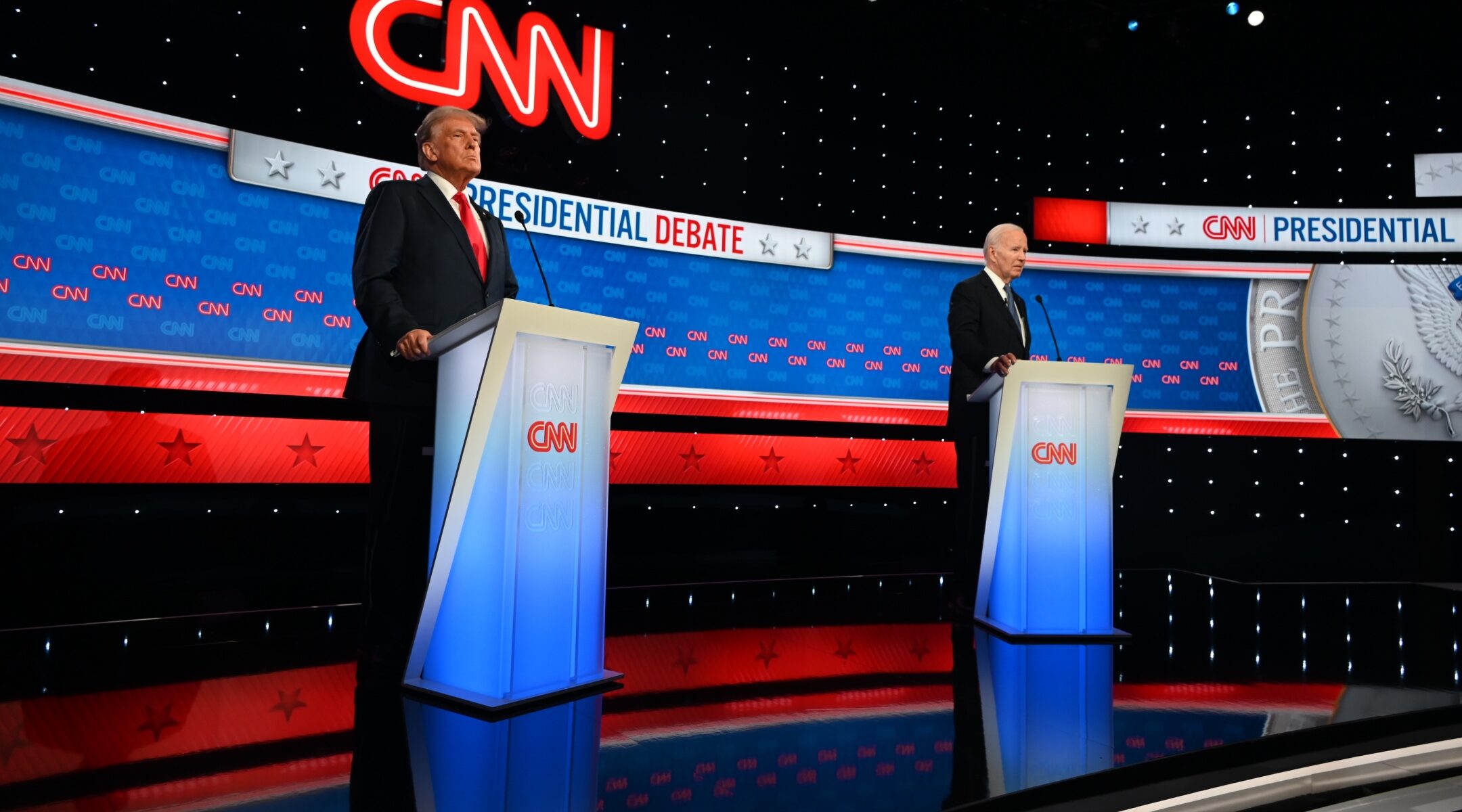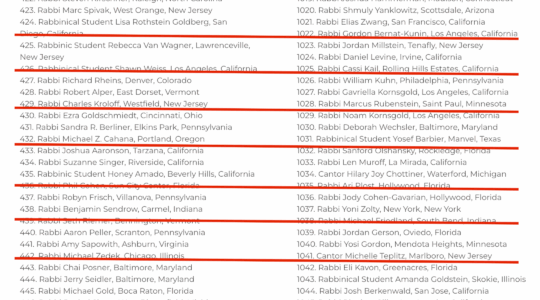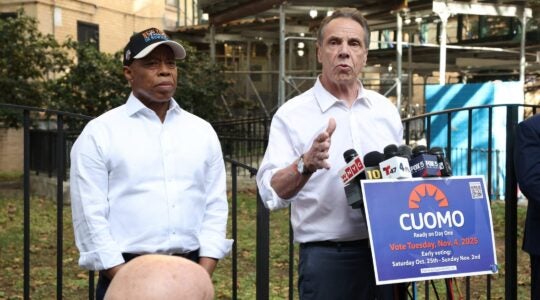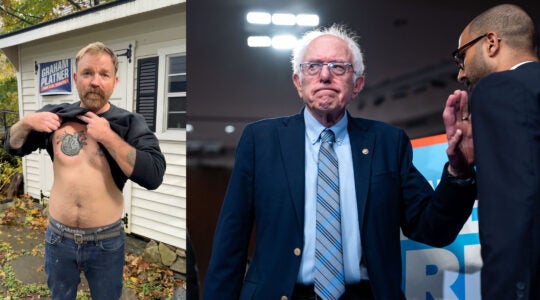Joe Biden and Donald Trump rambled and jabbed each other with insults in a debate that included exchanges about Israel’s war with Hamas and neo-Nazi violence.
The debate in Atlanta Thursday night, moderated by CNN’s Dana Bash and Jake Tapper, was the first of two scheduled for this presidential election. The nominees faced each other in two debates in 2020. Biden bested Trump, then the incumbent, in that election.
This debate left many Democrats debating whether Biden should remain the party’s candidate in November. Biden was hoarse, frequently corrected himself mid-sentence and on several occasions appeared to lose his train of thought. Trump, meanwhile, spoke robustly but in run-on sentences that included numerous falsehoods, about the 2020 election and the prosecutions and lawsuits he has faced.
The result was a number of bizarre moments, including one related to Israel’s war with Hamas. “He’s become like a Palestinian,” Trump said of Biden during the section dealing with foreign policy. “But they don’t like him because he’s a very bad Palestinian. He’s a weak one.”
Biden said he had secured across the board agreement for his three-stage plan to end the war, including from Israel.
“Everyone from the United Nations Security Council, straight through the G7 to the Israelis and [Israeli Prime Minister Benjamin] Netanyahu have endorsed the plan that I put forward,” Biden said. “The only one who wants the war to continue is Hamas.”
Trump said Biden was wrong and that Israel did want the war to continue — and that it should. “As far as Israel and Hamas, Israel’s the one that wants to go — he said the only one who wants to keep going is Hamas,” Trump said. “Actually Israel is the one, and you should let them go and let them finish the job. He doesn’t want to do it.”
Trump, as he had in the past, also said he left office with Iran on its heels, and that it had rallied under Biden, allowing its surrogates, Hamas and Hezbollah, to launch the war against Israel.
Trump and Biden also clashed over the deadly 2017 neo-Nazi march in Charlottesville, Virginia, when Trump equivocated in condemning the marchers. The incident animated Biden’s decision to run for president and has been a theme of his public comments since.
“He said ‘I think there are fine people on both sides,'” Biden said. “What American president would ever say Nazis coming out of fields carrying torches, singing antisemitic bile, while carrying swastikas are fine people?”
Trump repeatedly said Biden’s Charlottesville account was a lie that has been debunked. “He made up the Charlottesville story, and you’ll see it’s debunked all over the place,” he said.
At the time, Trump said on multiple occasions that there were bad and good people on both sides in Charlottesville, and specifically called out neo-Nazis. The marchers at Charlottesville were overwhelmingly neo-Nazis and white supremacists, and the counter-protesters were mostly peaceful.
Biden also referred to reports, from Trump’s late wife Ivana and from Trump’s White House chief of staff John Kelly, that Trump had said some things about Adolf Hitler were admirable.
Biden attempted to repeat one of the key moments in the 2020 debate, when Trump refused to renounce his white supremacist and extremist backers, instead calling on one far-right group to “stand back and stand by.”
Biden asked Trump to denounce the rioters who led the deadly insurrection at the Capitol on Jan. 6, 2021, spurred by Trump’s call to overturn the election.
“I said, ‘Will you denounce the Proud Boys?’ He said, ‘No, I’ll tell them to stand by,'” Biden recalled. “Will you denounce these guys? Will you denounce the people we’re talking about now? Will you denounce the people who attacked the Capitol?” Unlike in 2020, Trump ignored the challenge.
Trump also repeated a claim that his election alone would spur Russian President Vladimir Putin to release Evan Gershkovich, the Jewish Wall Street Journal reporter held prisoner for more than a year.
JTA has documented Jewish history in real-time for over a century. Keep our journalism strong by joining us in supporting independent, award-winning reporting.






